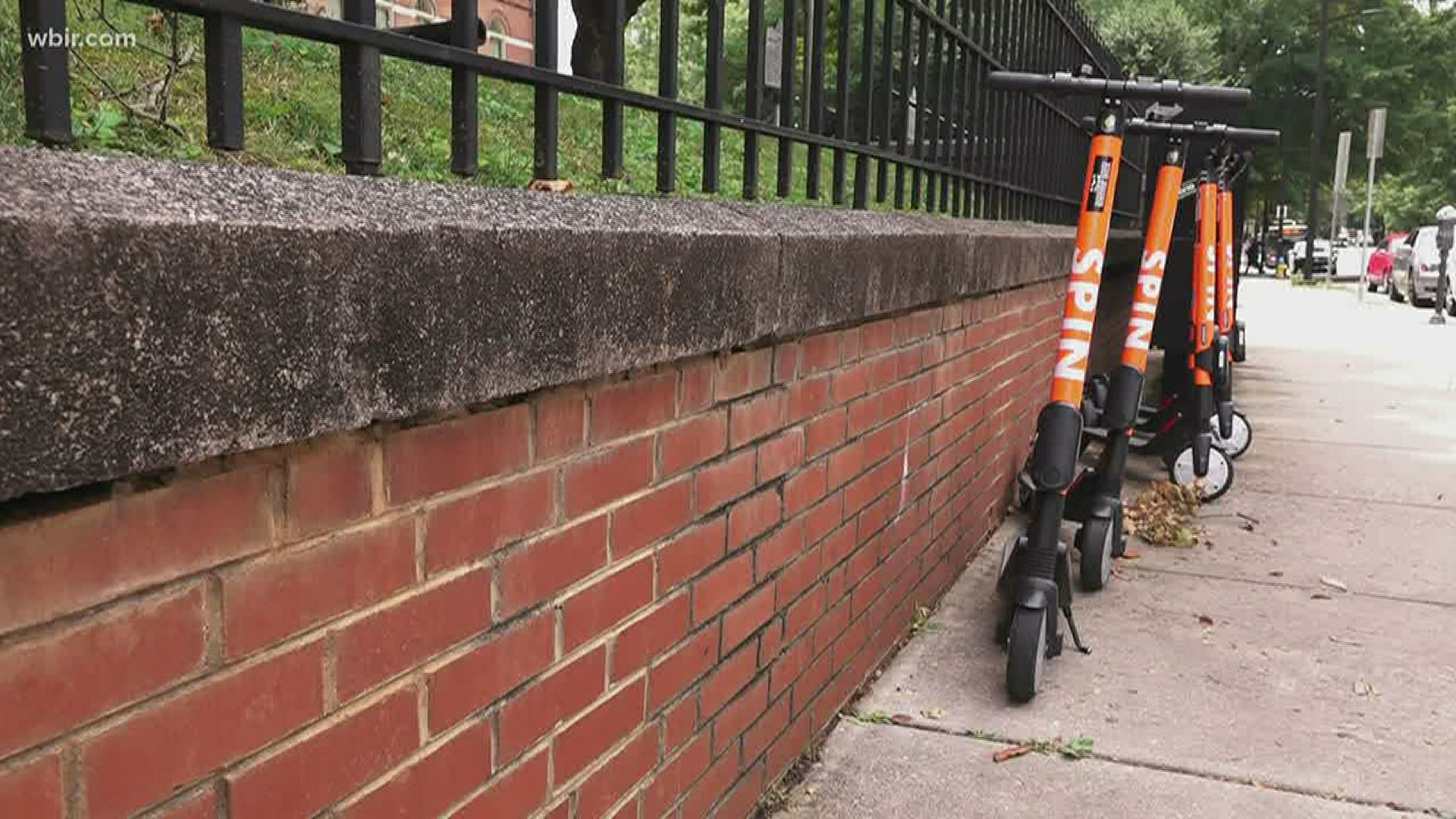KNOXVILLE, Tenn. — Scooters in Nashville are now available for essential workers to use. When they will return in Knoxville, along with shared bikes, is still up in the air.
Many depend on public transit to get to work, including bikes, scooters and buses. Before businesses closed to slow the spread of coronavirus, they were an easy way for people in Knoxville to get around. Then, they were removed or disabled because of COVID-19.
"When COVID-19 hit, we saw this dramatic reduction in transit use," said UT Civil and Environmental Engineering professor Chris Cherry. He also said that demand dropped by 50% to 90% in the U.S.
RELATED: 11,891 confirmed cases of coronavirus in Tennessee, including 5,546 recoveries & 204 deaths
Cherry, along with UT professor Candace Brakewood, is a part of a nationwide team studying how people may return to using public transit — especially bikes and scooters. It's a collaborative project between the University of Tennessee and Portland State University.
They're focusing on what it will take for people, like essential workers, to hop back on.
"As we recover, it's important to understand what people's risk perceptions are," said Cherry.
Collecting data from Nashville and Portland, they'll study how people's behaviors change while they adjust to a new normal. They're partnering with local public agencies, WeGo Public Transit and TriMet in Nashville and the Bureau of Transportation in Portland, to see the commuting patterns in both cities.
Shared bike and scooter companies Bird, Spin, BIKETOWN and Transit App are providing support to track changes in ridership during recovery.
"We're helping transit agencies and micro-mobility operators understand what it'll take to get people back on their vehicles, and to do so in a safe way," said Cherry.
Health officials are concerned with not knowing where or who the device was with before.
In Knoxville, city leaders said phase one of the Knox County Health Department's reopening plan requires strict health and safety standards which will have to be met for scooter companies to return.
Officials said they're still discussing with companies on how they can get their scooters back in the city.
"It's important to understand this part to get basic services back online," said Cherry.
The research team hopes they can help predict how city transit systems will recover now, and in the future. Their research is just beginning, and work will continue as people return to normal in the fall.

